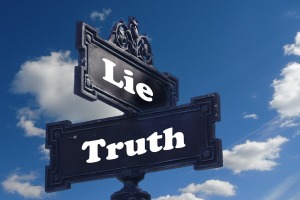Is Amazon Prime worth it?
To learn Biblical answers to your financial questions, you can #AskChuck @AskCrown your questions by clicking here. Questions used may be lightly edited for length or clarity.

Dear Chuck,
My friends rave about their Amazon Prime membership. I’m not convinced. Do you have an opinion?
Not Ready for Prime
Dear Not Ready,
Thanks for your question. It is one I had not carefully analyzed, so this may be helpful for members and non-members alike.
My wife, Ann, and I have been Amazon Prime members for years. From a financial standpoint, it’s been worth it for us. The fast, free shipping has been helpful when sending items to college students and gifts to family and friends. We watch occasional movies via Amazon and take advantage of discounts at Whole Foods. But it does merit a closer analysis since some users may not get their money’s worth.
The membership costs $119 per year or $59 for students. It grants access to movies, TV, music, photo storage, special discounts, and free two-day shipping on many items to 100 million subscribers. Plus, the benefits, with limitations, can be extended to in-home family members.
However, you don’t have to be a member to get free shipping. A $25 order of eligible items grants standard shipping. Wal-Mart and Target offer that as well.
A Prime membership is worth it if:
- You order products from Amazon frequently (free two-day shipping)
- You want a cheaper alternative to Netflix or Spotify
- You need a place to store unlimited photos (Prime Photos)
- You want discounts to Whole Foods
- You will use Prime Reading for select books and magazines
- You want Lightning Deals and early access to the summer sale called Amazon Prime Day
- You want to Subscribe and Save
- You’re not concerned about the size and influence of the company
It’s not worth it if:
- You don’t order from Amazon frequently
- Your orders are typically over $25
- You don’t want streaming video or music
- You prefer to support local businesses
- You can’t control your spending
- You’re concerned about privacy
- You’re concerned about Amazon warehouse conditions
It is estimated that more than half of American households will be Prime members in 2019. For many, it saves valuable time with quick price comparisons, product reviews and fewer trips to the store. It is nice for busy people to be able to have items delivered to their home with just the click of a button.
Some Downsides to the Ease of Amazon Shopping
Impulse buying is a serious problem for many. A friend recently shared with me that his wife seems addicted to the ease of clicking and buying items from Amazon that are not essentials. He thinks it is becoming a form of escapism for her. He says the more they buy, the more empty the purchases become.
My wife, along with other Prime shoppers, has learned to put items in the online cart but not purchase them immediately. This gives time to think and pray about a purchase over a period of days or weeks. The desire or need for the item often disappears or is satisfied another way, and can be removed from her cart. It requires self-control.
Unfortunately, shopping is a distraction that cripples many men and women alike. We are called to steward our time, talents and money. These can be squandered if we do not discipline ourselves and keep an eternal perspective.
A Perspective from the Landfill
Just last week, I was privileged to have a tour inside one of the largest landfills in Asia. Located in Jakarta, Indonesia, an estimated 7,000 people call these mountains of garbage their home. They live inside the landfill and glean the valuables from what others have thrown away. I learned that 6,000 - 8,000 tons of garbage are added to this massive dump site every single day.
I met people who are very similar to you and me in that they love their families, work hard to provide and want a better life for their children. In spite of the horrendous odor and the horrible squalor of rotting, blowing debris everywhere, they find joy and contentment in what they have. Looking at the massive piles of refuse piled five stories high and growing, I was convicted by how much I needlessly purchase things and stuff that will end up there. I was drawn to reflect upon what the Lord taught us about becoming less materialistic.
1. Jesus did not tell us to accumulate possessions for ourselves.
Sell your possessions and give to the poor. Provide purses for yourselves that will not wear out, a treasure in heaven that will never fail, where no thief comes near and no moth destroys.For where your treasure is, there your heart will be also. (Luke 12:33-34)
2. Jesus did not tell us to entertain ourselves more.
Be very careful, then, how you live—not as unwise but as wise, making the most of every opportunity, because the days are evil.Therefore do not be foolish, but understand what the Lord’s will is. (Ephesians 5:15-17)
3. Jesus did tell us to remember the poor.
All they asked was that we should continue to remember the poor, the very thing I had been eager to do all along. (Galatians 2:10)
Also see James 2:14-17, 1 Timothy 5:8; 1 John 3:17-18, Proverbs 19:17, and Acts 20:3
4. Jesus did warn us that “life does not consist in the abundance of possessions.”
Then he said to them, “Watch out! Be on your guard against all kinds of greed; life does not consist in an abundance of possessions.” (Luke 12:15)
To Prime or Not to Prime?
The ethical side of Prime membership, privacy concerns and your view of the company are all personal decisions. However, financial decisions can be made as to whether you will get a return on investment based upon your actual usage and whether or not the membership will cause you to increase needless spending. If you can be content without Prime, as millions of Americans are, then enjoy shopping local and helping the small businesses in your community.





























